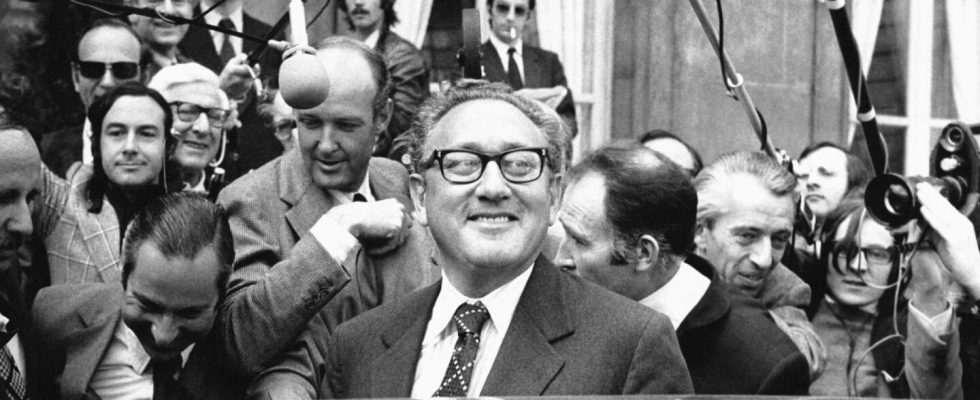“Doctor Strangelove”, “Nixon’s Metternich”, “Middle East Cyclone”: these nicknames attributed to Henry Alfred Kissinger, who died on Wednesday November 29 in his house in Connecticut at the age of 100, testify to the exceptional personality and the immense power over the progress of the world, from 1968 to 1977, of the man who was especially called “Dear Henry”, out of affection or derision. His disappearance was announced in a press release from his consulting firm.
His life illustrates the extraordinary success of an academic, a theoretician of diplomacy promoted to a leading player on the international scene. Between cynicism and seduction, brutality and skill, this architect of American Realpolitik and the policy of “détente” with the USSR favored planetary stability over democracy and human rights. His career bears witness to the mobility of American society where a German Jewish emigrant without resources managed to reach the heights of power, until becoming the most famous diplomat in the world.
Heinz Alfred Kissinger was born on May 27, 1923 in Fürth, near Nuremberg, the first son of a family whose father, Ludwig, a schoolteacher, was of strict Jewish obedience. Later, Heinz, now Henry, would recall with emotion his bar mitzvah celebrated in the midst of the unleashing of Nazi anti-Semitism. Paula, his mother, organizes the family’s departure for the United States. In 1938, the Kissingers moved to a Jewish neighborhood in New York, where Heinz attended school while earning his first dollars as an errand boy.
Determined to assimilate, he experiences a difficult adolescence and shines in exams. But the war alters his career plan. Naturalized upon his incorporation, he underwent his baptism of fire in the Ardennes, where he volunteered for dangerous patrols. At the end of the war, the army entrusted him with the administration of Bavarian towns and the application of “denazification”. Despite the instructions prohibiting fraternization, Henry already showed a pronounced taste for the company of women. In 1947, he returned to the United States: the prestigious Harvard University admitted him in view of his service record.
Under the supervision of the head of the political science department with access to the White House, Kissinger is responsible for organizing an “international seminar”, in which many foreign personalities participate. He thus builds up a prestigious address book that he will be able to grow.
An absence of scruples
You have 80% of this article left to read. The rest is reserved for subscribers.

